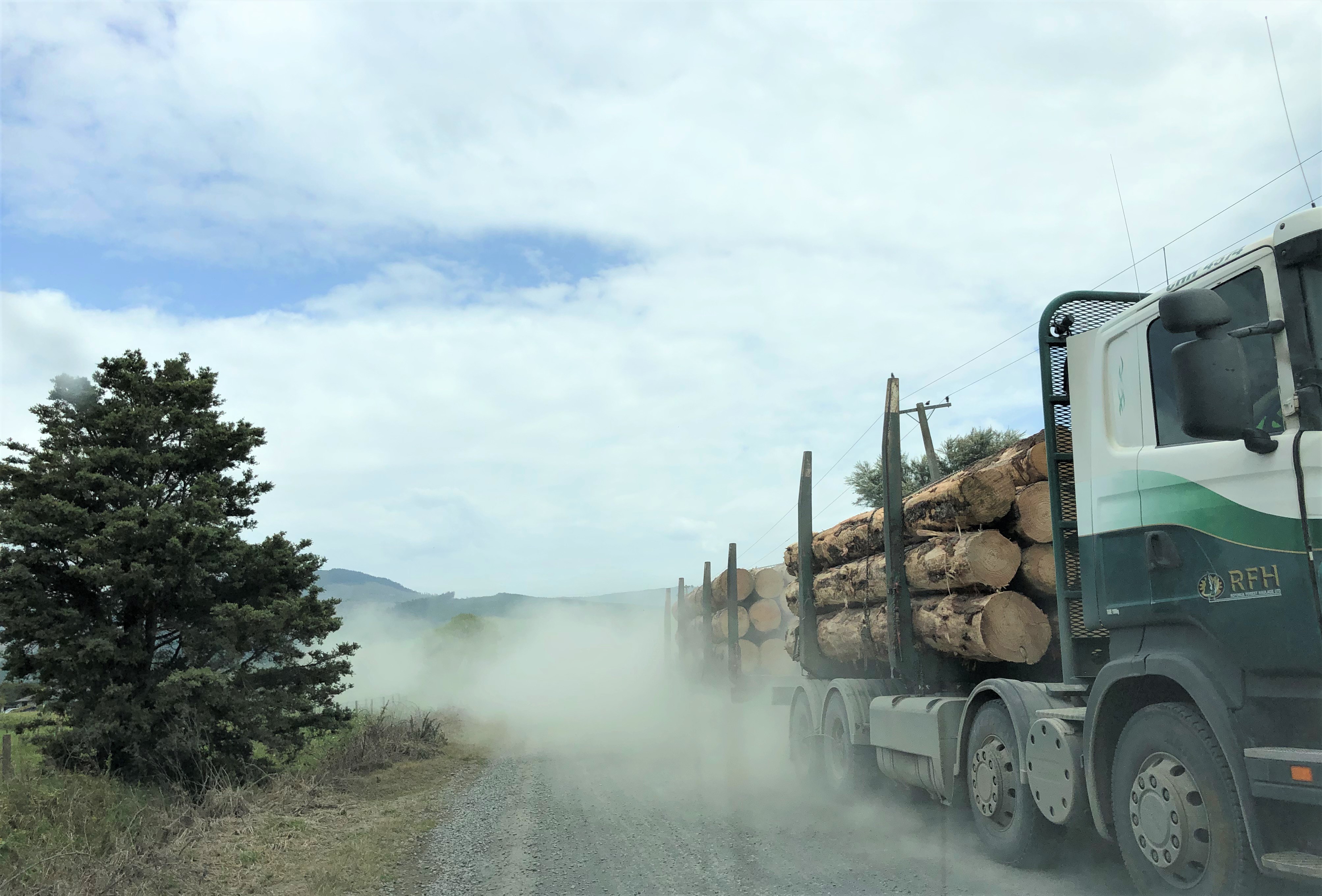Dust suppression for 50 Far North roads
Relief should arrive before Christmas for residents living on some of the Far North’s dustiest roads following a funding agreement between the Far North District Council and forestry companies.

Relief should arrive before Christmas for residents living on some of the Far North’s dustiest roads following a funding agreement between the Far North District Council and forestry companies.
The agreement will see dust suppression compounds applied to sections of 50 unsealed roads in the District, providing relief to residents of more than 160 homes worst affected by road dust.
The deal with Hancock Forest Management, Summit Forests New Zealand, and Northland Forest Managers shares the cost with the Council of applying dust suppression compounds on rural roads.
The agreement recognises the impact the forestry industry has on the district’s roads and complements funding the Council already allocates annually to dust suppression.
General Manager – Infrastructure and Asset Management Andy Finch says the deal with forestry companies was facilitated by the Northland Transportation Alliance and followed a meeting with community representatives and local iwi affected by dust on unsealed roads.
“Forestry is a very important economic activity for the District, but it impacts heavily on our roads and on residents who live close to key forestry routes. This voluntary contribution from forestry companies acknowledges the industry’s contribution to road dust problems and demonstrates a willingness to offset the cost to ratepayers.”
Dust suppression compounds are a temporary solution for controlling road dust and are sprayed onto the road surface at the beginning of summer. The compounds bond with road dust but do not make the road surface slippery.
While it is significantly cheaper than tar sealing roads, dust suppression compounds have a short lifecycle of around three months, depending on traffic volumes and the impact of wet weather. Treated sections of road are not graded to prolong the life of the product.
The Council aims to complete the dust suppression work by 20 December and will signpost all sections of road treated with dust suppression compounds.
Road were selected for treatment based on their ranking in road sealing priority matrix developed by the Council. This uses transparent criteria to fairly and consistently rank all roads across the district for road sealing or dust suppression.
All the compounds used have been confirmed as environmentally safe by both the Environment Protection Authority and Northland Regional Council.
Residents who want to arrange and pay for dust suppressants to be applied to their roads outside of the arrangements put in place by Council can do so by contacting Gravel Lock NZ Ltd or Rainstorm Australia.
Tags: News story

